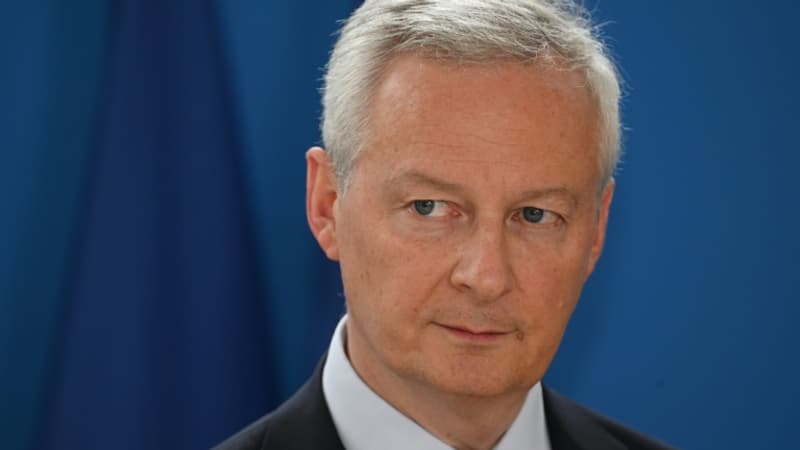The Minister of Finance, Bruno Le Maire, indicated on Tuesday that he wanted to save “from 2024” half of the 2,500 million euros of surplus cash identified with state operators such as the CNRS or Pôle emploi.
After a review of public spending carried out in recent months by the administration with about twenty of these structures that carry out public service missions, the government has verified a “very abundant cash flow”, said the minister in Franceinfo.
“The principle of the 2024 budget is to accelerate the reduction of the country’s debt,” Bruno Le Maire hammered home when France narrowly escaped a downgrade of its financial rating by the S&P agency in early June. In the first quarter of 2023, France’s public debt exceeded the symbolic threshold of 3 billion euros.
“Nothing justifies that they have such an abundant box”, hence the puncture of more than one billion euros planned within the framework of the 2024 financing bill, which will be presented at the end of September.
€56.6 billion in cash
According to an initial assessment of the Bercy-initiated public spending review, released to the press on Monday, “operators totaled €56.6bn in cash at the end of 2022, up from €33.8bn at the end of 2019”.
According to a recent report by the deputies Robin Reda (Renaissance) and Véronique Louwagie (Les Républicains), France will have no less than 438 state operators in 2023, employing more than 400,000 people. In their work published in June, the two parliamentarians already recommended reducing the subsidy for smaller operators (fewer than 250 employees) by one third.
On Tuesday morning, the Economy and Finance Minister also indicated that the government would not create new financial aid for the most modest households, the day after President Emmanuel Macron promised to “continue to support them appropriately.” “It is not about establishing other aid, (…) there are energy checks for the most modest homes, Bruno Le Maire recalled.
Source: BFM TV


